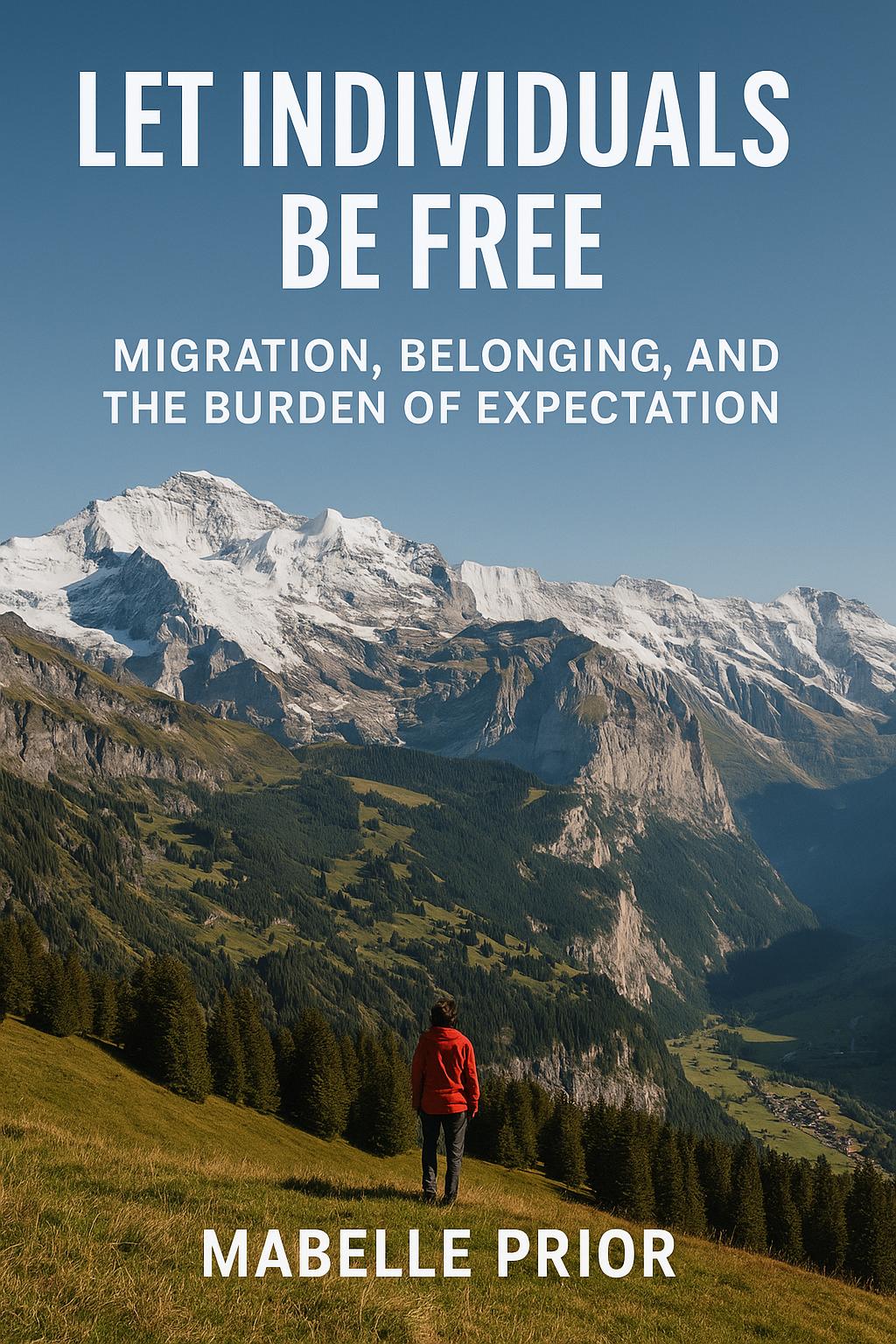

Let Individuals Be Free: Migration, Belonging, and the Burden of Expectation
By Mabelle Prior
One online comment changed everything.
“Do you have no work? Why are you promoting other people’s country?”
The stranger accused me of neglecting Africa, of betrayal, of celebrating Switzerland too much. They felt entitled to my life, my resources, my loyalty.
I replied with truth. I reminded them I am an author and journalist — sharing places and stories is my work. Most importantly, I told them: Switzerland is not “someone else’s country” for me. Switzerland saved my life when poverty nearly killed me in Africa. I have spent more years here than in my birthplace. Switzerland gave me dignity, hope, and a second chance. Switzerland is my country.
That post became more than a defense. It became a declaration of survival, belonging, and freedom.
“Switzerland is not someone else’s country for me. Switzerland saved my life.”
Migration as Survival
I did not migrate for adventure. I migrated to live.
In Africa, poverty almost killed me. Not because I was lazy, but because systems were broken. Friends died unjustly. Governments looked away. Institutions failed us.
Switzerland offered what home denied: safety, recognition, dignity. Migration was not betrayal. It was not abandonment. It was survival.
Why People Move: Push and Pull Factors
Push Factors: Poverty, corruption, insecurity, lack of healthcare, climate stress. Pull Factors: Safety, education, dignity, fair wages, future hope.
Migration is rarely a choice — it is often survival in the face of broken systems.
Switzerland as Homeland
For many, home is birthplace. For me, home is where I was allowed to live fully.
I have spent more years in Switzerland than in Africa. Here, I am not invisible. Here, I became myself.
Belonging is not only ancestry. It is lived. By those measures, Switzerland is my country.
Loving Switzerland does not mean hating Africa. Love expands. “Belonging is not inherited. Belonging is lived.”
The Burden of Expectation
Migrants often carry heavy expectations.
We are expected to send money, build houses, sponsor relatives, “fix” our countries. And when we don’t, accusations follow.
But why blame individuals? Migrants did not cause corruption. Migrants did not steal public wealth. Yet we become targets of bitterness.
The anger is misplaced. It belongs with politicians who betray their people — not with migrants who fight to survive.
The Power of Remittances (2022)
Nigeria – $20.1B
Ghana – $4.7B
Kenya – $4.0B
Senegal – $2.7B
Zimbabwe – $2.0B
In many nations, remittances surpass foreign aid — yet this fuels unfair expectations that migrants must serve as national providers.
Digital Publics and Contestations
The confrontation that sparked this story happened online.
On social media, every word becomes a test of loyalty. Share gratitude to your host country? Accused of betrayal. Share joy abroad? Accused of forgetting home.
Digital space magnifies bitterness. But it also allows resistance. My post turned accusation into declaration. I redefined myself, publicly.
Digital Nationalism
Definition: Policing loyalty online.
Features:
- Migrants shamed for gratitude to host nations.
- Criticism amplified in threads.
- Bitterness replaces accountability.
In digital spaces, belonging is constantly contested.
Freedom, Autonomy, Celebration
At the heart of it all is freedom.
The freedom to live without fear. The freedom to love without apology. The freedom to celebrate without guilt.
Migrants are often denied joy. But joy is not betrayal. Joy is testimony: proof that survival was worth it, that life can bloom again.
I love Switzerland. I love Europe. This does not erase my origins. It honors my survival.
“Joy is not betrayal. Joy is testimony.”
Conclusion
Migration is survival. Belonging is lived. Expectation is heavy. Digital space is contested. Joy is resistance.
When I wrote my online response, I ended with these words:
“Let individuals be free to live, love, and celebrate their journeys.”
This is more than a sentence. It is a manifesto.
References
- Appadurai, Arjun. Modernity at Large.
- Castles, Stephen; de Haas, Hein; Miller, Mark. The Age of Migration.
- Gilroy, Paul. Postcolonial Melancholia.
- Mbembe, Achille. On the Postcolony.
About the Author
Mabelle Prior is a journalist and author. Having lived in Switzerland for many years after migrating from Africa, she writes at the intersection of identity, migration, and cultural belonging.
